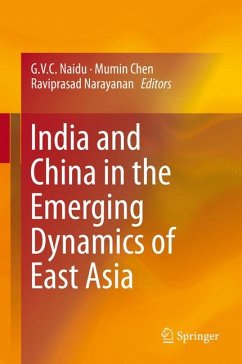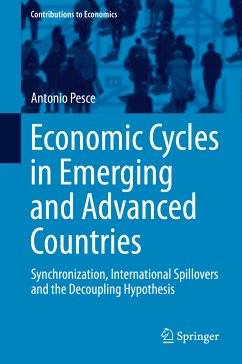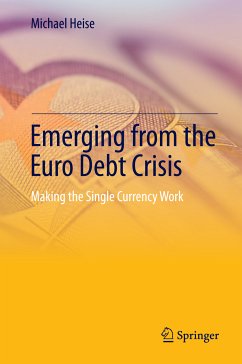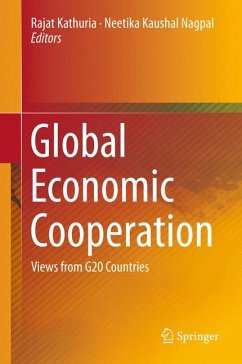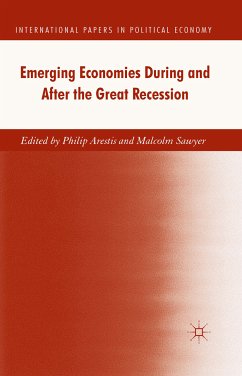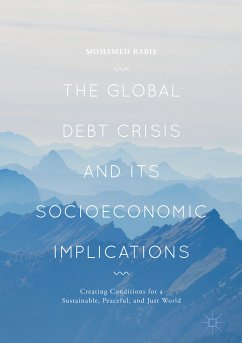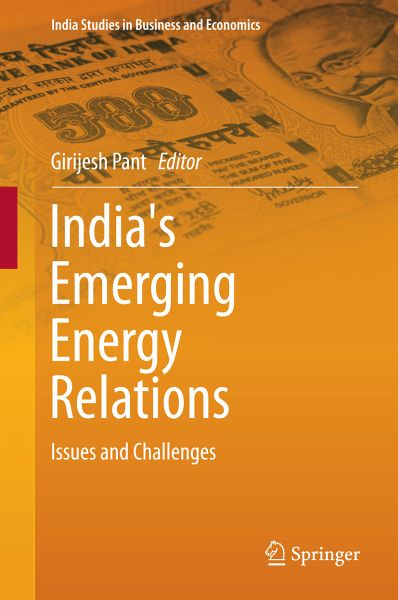
India's Emerging Energy Relations (eBook, PDF)
Issues and Challenges
Redaktion: Pant, Girijesh
Versandkostenfrei!
Sofort per Download lieferbar
40,95 €
inkl. MwSt.
Weitere Ausgaben:

PAYBACK Punkte
20 °P sammeln!
This book analyzes the role of energy in Indian foreign policy, particularly in defining bilateral relations. It also focuses on the critical gaps in conceptualizing its formulations and recommends a framework for sustainable energy security. India, the fourth largest consumer of oil, is an energy-deficit economy, importing more than eighty percent of its needs. This makes securing energy integral to its foreign policy goals. Obviously it is important for India to actively participate in the global energy market and establish robust, enduring and nuanced diplomatic relations with energy export...
This book analyzes the role of energy in Indian foreign policy, particularly in defining bilateral relations. It also focuses on the critical gaps in conceptualizing its formulations and recommends a framework for sustainable energy security. India, the fourth largest consumer of oil, is an energy-deficit economy, importing more than eighty percent of its needs. This makes securing energy integral to its foreign policy goals. Obviously it is important for India to actively participate in the global energy market and establish robust, enduring and nuanced diplomatic relations with energy exporting countries. Equally important is that India diversifies its energy mix and moves towards carbon-free growth. Renewable energy is today high on the global energy agenda. Indian energy policy thus has to address a range of issues, domestically and on foreign turf. It has to move beyond the transactional mode by creating equity in the global energy industry.
Today, the global energy regime is undergoing fundamental changes, as is the power dynamics of the global energy order. There are now many new producers and diverse consumers. The trade in energy has increased in volume and its direction has shifted from the West to the East, and the ongoing structural changes in the energy market call for a new security architecture. Given the complex and competitive environment of the new geo-economics and geopolitics of energy, the question could well be, should India frame energy issues in conflict mode or move toward innovative cooperation? In either case the message is that India needs an integrated energy security policy.
Today, the global energy regime is undergoing fundamental changes, as is the power dynamics of the global energy order. There are now many new producers and diverse consumers. The trade in energy has increased in volume and its direction has shifted from the West to the East, and the ongoing structural changes in the energy market call for a new security architecture. Given the complex and competitive environment of the new geo-economics and geopolitics of energy, the question could well be, should India frame energy issues in conflict mode or move toward innovative cooperation? In either case the message is that India needs an integrated energy security policy.
Dieser Download kann aus rechtlichen Gründen nur mit Rechnungsadresse in A, B, BG, CY, CZ, D, DK, EW, E, FIN, F, GR, HR, H, IRL, I, LT, L, LR, M, NL, PL, P, R, S, SLO, SK ausgeliefert werden.



